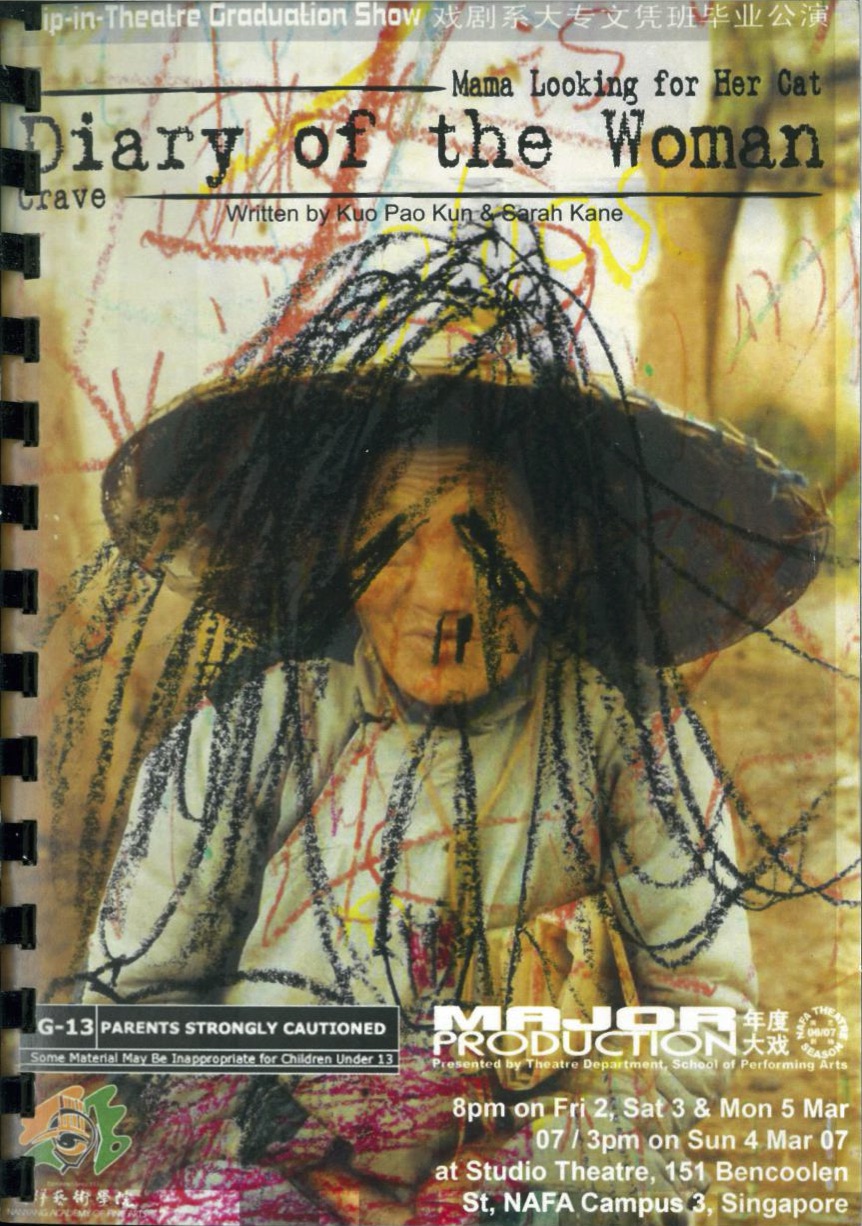For Sarah Kane, Crave marked a shift in terms of formal structure. More of a tone poem than a conventional drama, the published playtext states:
Having pioneered a new theatre where brutality and action express an emotional narrative, here she deploys language like music. Rhythm and orchestration are as vital here as content to understanding and responding to the play.
Several critics note that the text has echoes of ,the King James Bible, Shakespeare, T S Elliot and Samuel Beckett. Kane has also spoken of the direct influences on her of Rainer Werner Fassbinder's play Pre-Paradise Sorry Now (1970) and Martin Crimp's Attempts on her Life (1997).
The form of the play, with its use of numerous allusions, makes Crave a demanding work, and one that constantly eludes a definitive interpretation. Its inherent intertextuality underpins its formal and thematic structure: fragmentary quotations taken from literary, religious and popular culture are embedded within the characters' own elliptical narratives.
